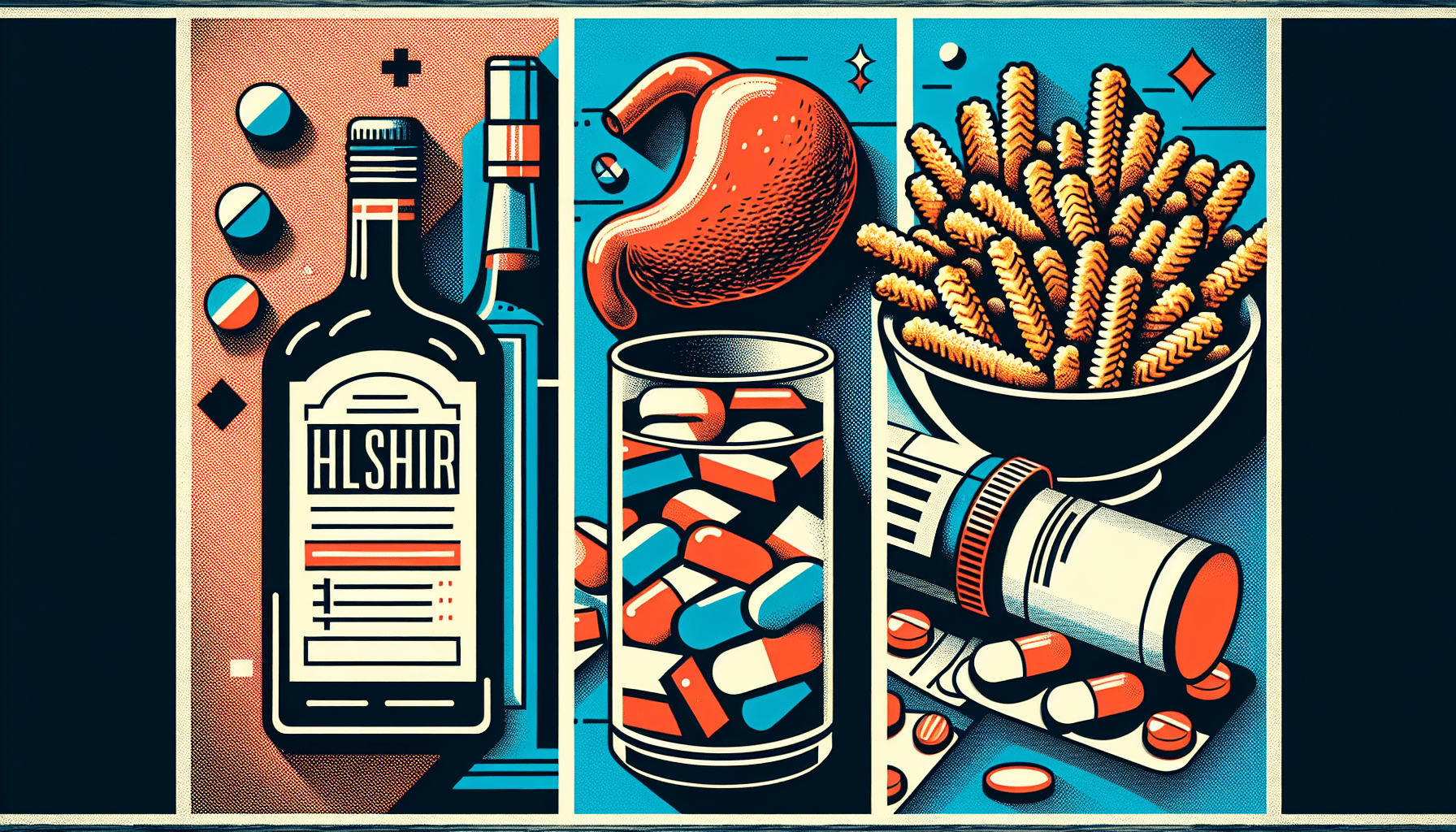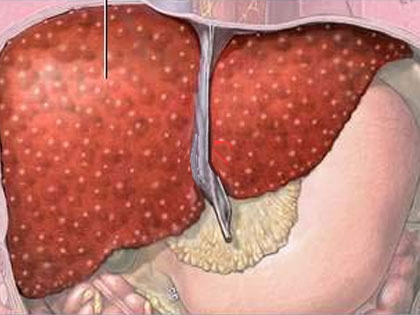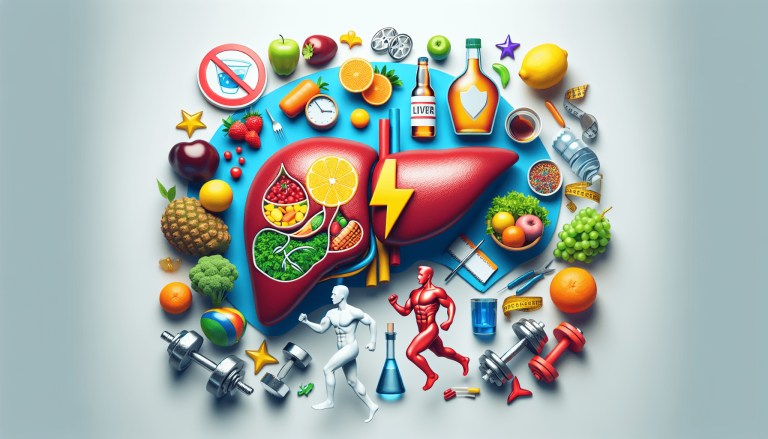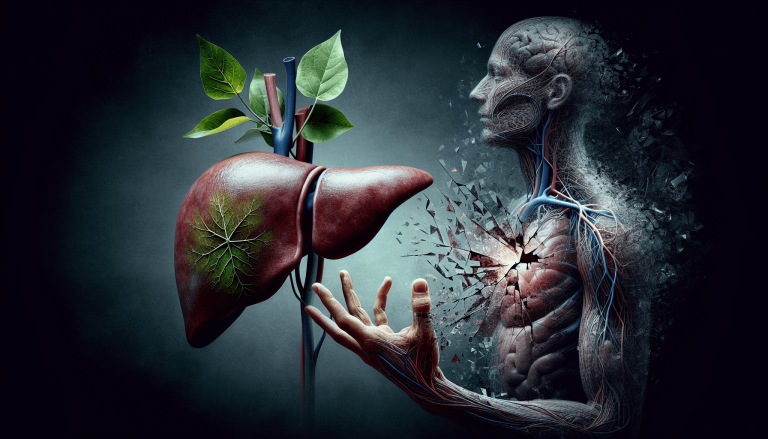What Are The Three Worst Things For Your Liver?
Hey there, friend! Today, we’re going to talk about the three worst things for your liver. Your liver is a vital organ that performs many crucial functions in your body, so it’s important to take care of it. Let’s delve into the top three things that can have a negative impact on your liver health and how you can avoid them. Stay tuned to learn more about keeping your liver in tip-top shape!
Hey there! Are you curious to know what could be harming your liver? Well, you’ve come to the right place. In this article, we’ll dive into the three worst things for your liver and how they can impact your overall health. Let’s get started!
Alcohol
Ah, alcohol. While it may be a staple at social gatherings and a way to unwind after a long day, excessive alcohol consumption can take a toll on your liver. Your liver works hard to break down alcohol and remove toxins from your body, but over time, heavy drinking can lead to liver damage.
How does alcohol affect your liver? When you drink alcohol, your liver breaks it down into a toxic substance called acetaldehyde. This substance is then converted into acetate, which is harmless and can be easily excreted from the body. However, if you drink more alcohol than your liver can handle, the excess acetaldehyde can build up and cause damage to your liver cells.
How much is too much? The recommended alcohol consumption for men is up to two drinks per day, and for women, up to one drink per day. Exceeding these limits can increase your risk of liver damage and other health issues.
Tips for reducing alcohol consumption:
- Set limits for yourself and stick to them.
- Find alternative ways to relax and unwind without alcohol.
- Seek support from friends, family, or a healthcare professional if you’re struggling to cut back on your drinking.
Effects of Alcohol on the Liver
Alcohol-related liver disease can range from mild fatty liver to more severe conditions like alcoholic hepatitis and cirrhosis. These conditions can lead to liver failure and even death if left untreated.
Fatty Liver Disease: Excessive alcohol consumption can lead to the buildup of fat in your liver, causing inflammation and scarring. This condition, known as fatty liver disease, can progress to more serious liver damage if alcohol consumption continues.
Alcoholic Hepatitis: This condition is characterized by liver inflammation caused by heavy drinking. Symptoms may include jaundice, abdominal pain, and fatigue. Alcoholic hepatitis can be life-threatening if not addressed promptly.
Cirrhosis: Cirrhosis is the most advanced stage of alcohol-related liver disease, where scar tissue replaces healthy liver tissue. This can disrupt liver function and lead to complications such as liver failure, portal hypertension, and hepatic encephalopathy.
How to Protect Your Liver from Alcohol
While cutting back on alcohol consumption is the best way to protect your liver, there are other steps you can take to support liver health:
- Drink plenty of water to stay hydrated and help your liver function properly.
- Eat a healthy diet rich in fruits, vegetables, and whole grains.
- Stay physically active to maintain a healthy weight and reduce the risk of liver disease.
- Avoid mixing alcohol with medications that can be harmful to your liver.
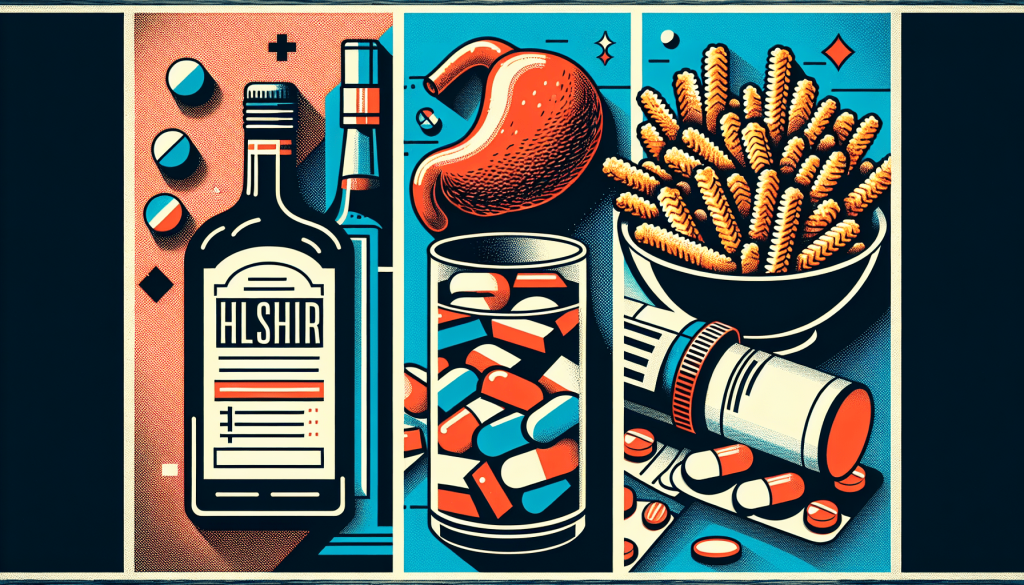
Processed Foods
You may love the convenience and taste of processed foods, but they can be harmful to your liver in the long run. These foods are often high in added sugars, unhealthy fats, and artificial ingredients that can contribute to liver damage over time.
How do processed foods affect your liver? Processed foods are typically low in essential nutrients like vitamins, minerals, and fiber, while being high in calories, sugar, and salt. Consuming these foods regularly can lead to weight gain, insulin resistance, and fatty liver disease.
What to look out for:
- Added sugars: Watch out for hidden sugars in processed foods like sugary drinks, snacks, and condiments. These can contribute to fatty liver disease and insulin resistance.
- Unhealthy fats: Trans fats and saturated fats found in processed foods can raise cholesterol levels and increase the risk of liver damage.
- Artificial ingredients: Preservatives, food coloring, and flavor enhancers in processed foods can put stress on your liver and other organs.
Tips for reducing processed foods:
- Cook meals at home using whole, unprocessed ingredients.
- Read food labels carefully and avoid products with a long list of ingredients you can’t pronounce.
- Opt for fresh fruits, vegetables, lean proteins, and whole grains instead of packaged snacks and ready-to-eat meals.
Effects of Processed Foods on the Liver
Consuming a diet high in processed foods can have several negative effects on your liver health, including:
- Fatty Liver Disease: The excess calories, sugars, and unhealthy fats in processed foods can contribute to the buildup of fat in your liver, leading to inflammation and scarring.
- Insulin Resistance: Processed foods high in added sugars can cause spikes in blood sugar levels, increasing the risk of insulin resistance and non-alcoholic fatty liver disease.
- Inflammation: Artificial ingredients and additives in processed foods can trigger inflammation in the liver and other organs, potentially leading to liver damage over time.
How to Support Your Liver Health with Whole Foods
Making the switch to a whole foods-based diet can go a long way in supporting your liver health and overall well-being. Here are some tips to get started:
- Fill your plate with colorful fruits and vegetables rich in vitamins, minerals, and antioxidants.
- Choose lean proteins like fish, chicken, turkey, and plant-based sources like beans and lentils.
- Include whole grains like brown rice, quinoa, and oats in your meals for fiber and nutrients.
- Limit added sugars, unhealthy fats, and artificial ingredients in your diet to reduce the strain on your liver.
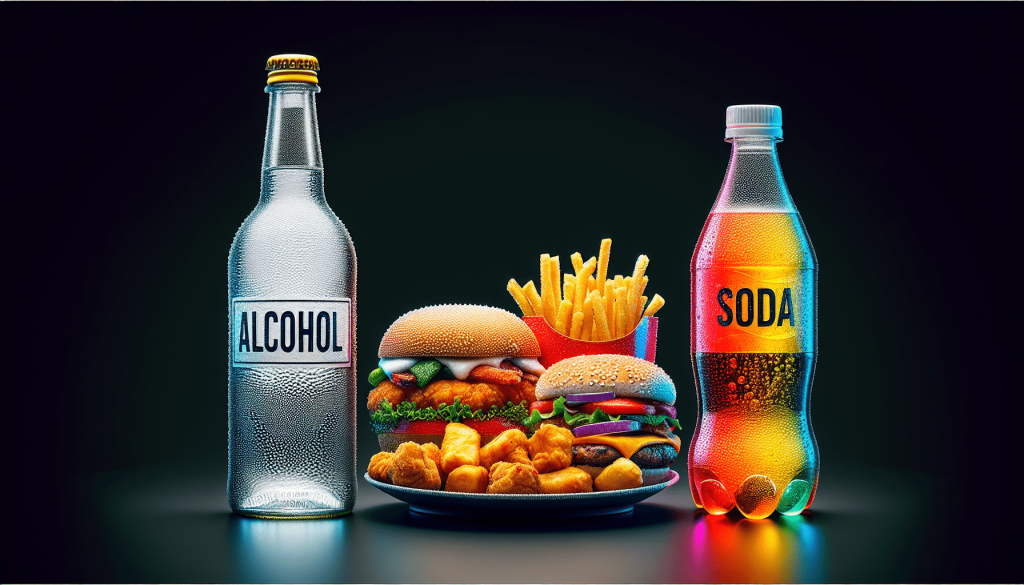
Sedentary Lifestyle
Do you spend most of your day sitting at a desk or on the couch? While it may seem harmless, a sedentary lifestyle can have negative effects on your liver health and overall well-being. Regular physical activity is essential for maintaining a healthy liver and reducing the risk of liver disease.
How does a sedentary lifestyle affect your liver? Physical inactivity can lead to weight gain, insulin resistance, and fatty liver disease, all of which can increase the risk of liver damage. Exercise helps improve blood flow to the liver, reduce inflammation, and support liver function.
Importance of physical activity:
- Regular exercise can help reduce the buildup of fat in the liver and prevent fatty liver disease.
- Physical activity can improve insulin sensitivity, reducing the risk of insulin resistance and metabolic syndrome.
- Exercise promotes overall liver health by enhancing blood circulation, reducing inflammation, and supporting detoxification processes.
Tips for staying active:
- Aim for at least 150 minutes of moderate-intensity exercise per week, such as brisk walking, cycling, or swimming.
- Incorporate strength training exercises into your routine to build muscle mass and boost metabolism.
- Break up long periods of sitting with short walks or stretching breaks throughout the day.
- Find activities you enjoy, whether it’s dancing, hiking, yoga, or playing sports, to stay motivated and make exercise a regular part of your routine.
Benefits of Exercise for Liver Health
Regular physical activity offers a host of benefits for liver health and overall well-being, including:
- Reduced Liver Fat: Exercise can help burn excess fat stored in the liver, reducing the risk of fatty liver disease.
- Improved Insulin Sensitivity: Physical activity enhances insulin sensitivity, lowering the risk of insulin resistance and type 2 diabetes.
- Enhanced Liver Function: Regular exercise supports liver detoxification, reduces inflammation, and improves blood flow to the liver.
How to Stay Active for Liver Health
In addition to structured exercise sessions, there are many ways to incorporate physical activity into your daily life to support liver health:
- Take the stairs instead of the elevator whenever possible.
- Walk or bike to nearby destinations instead of driving.
- Stand up and stretch regularly if you have a desk job or sit for long periods.
- Engage in active hobbies like gardening, dancing, or playing a musical instrument to stay active and have fun.
Conclusion
Congratulations on making it through the article! Now you’re well-informed about the three worst things for your liver: alcohol, processed foods, and a sedentary lifestyle. By being mindful of your choices and making positive changes to support liver health, you can reduce your risk of liver damage and promote overall well-being. Remember, your liver works hard to keep you healthy, so it’s important to take care of it. Cheers to a healthier liver and a happier you!
Additional Resources

Simple Way To Cleanse Your Liver (And Get Rid Of Fat)
If you struggle with stubborn belly fat… Then this organ in your body could be the culprit.
That’s because this small organ is 100% necessary for fat burning.
And there’s a new problem that can shut down this organ’s fat-burning.
So you gain pounds of fat no matter what diet you try or how hard you exercise.
But now a pioneering doctor has uncovered a 2,500 year old secret that reignites your body’s metabolic furnace to burn 24/7.

